1.Identification
1.1 GHS Product identifier
| Product name | fomesafen |
|---|
1.2 Other means of identification
| Product number | - |
|---|---|
| Other names | 5-[2-chloro-4-(trifluoromethyl)phenoxy]-N-(methylsulfonyl)-2-nitrobenzamide |
1.3 Recommended use of the chemical and restrictions on use
| Identified uses | For industry use only. |
|---|---|
| Uses advised against | no data available |
1.4 Supplier's details
| Company | MOLBASE (Shanghai) Biotechnology Co., Ltd. |
|---|---|
| Address | Floor 4 & 5, Building 12, No. 1001 North Qinzhou Road, Xuhui District, Shanghai, China |
| Telephone | +86(21)64956998 |
| Fax | +86(21)54365166 |
1.5 Emergency phone number
| Emergency phone number | +86-400-6021-666 |
|---|---|
| Service hours | Monday to Friday, 9am-5pm (Standard time zone: UTC/GMT +8 hours). |
2.Hazard identification
2.1 Classification of the substance or mixture
Acute toxicity - Oral, Category 4
2.2 GHS label elements, including precautionary statements
| Pictogram(s) | 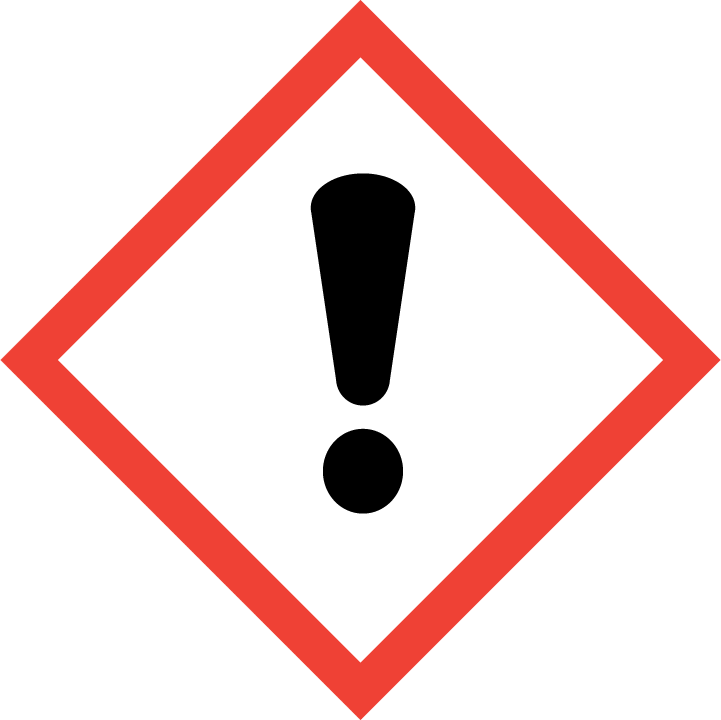 |
|---|---|
| Signal word | Warning |
| Hazard statement(s) | H302 Harmful if swallowed |
| Precautionary statement(s) | |
| Prevention | P264 Wash ... thoroughly after handling. P270 Do not eat, drink or smoke when using this product. |
| Response | P301+P312 IF SWALLOWED: Call a POISON CENTER/doctor/…if you feel unwell. P330 Rinse mouth. |
| Storage | none |
| Disposal | P501 Dispose of contents/container to ... |
2.3 Other hazards which do not result in classification
none
3.Composition/information on ingredients
3.1 Substances
| Chemical name | Common names and synonyms | CAS number | EC number | Concentration |
|---|---|---|---|---|
| fomesafen | fomesafen | 72178-02-0 | none | 100% |
4.First-aid measures
4.1 Description of necessary first-aid measures
General advice
Consult a physician. Show this safety data sheet to the doctor in attendance.
If inhaled
If breathed in, move person into fresh air. If not breathing, give artificial respiration. Consult a physician.
In case of skin contact
Wash off with soap and plenty of water. Consult a physician.
In case of eye contact
Rinse thoroughly with plenty of water for at least 15 minutes and consult a physician.
If swallowed
Never give anything by mouth to an unconscious person. Rinse mouth with water. Consult a physician.
4.2 Most important symptoms/effects, acute and delayed
no data available
4.3 Indication of immediate medical attention and special treatment needed, if necessary
/SRP:/ Immediate first aid: Ensure that adequate decontamination has been carried out. If patient is not breathing, start artificial respiration, preferably with a demand valve resuscitator, bag-valve-mask device, or pocket mask, as trained. Perform CPR if necessary. Immediately flush contaminated eyes with gently flowing water. Do not induce vomiting. If vomiting occurs, lean patient forward or place on the left side (head-down position, if possible) to maintain an open airway and prevent aspiration. Keep patient quiet and maintain normal body temperature. Obtain medical attention. /Poisons A and B/
5.Fire-fighting measures
5.1 Extinguishing media
Suitable extinguishing media
Use dry chemical, foam or CO2 extinguishing media. Wear full protective clothing and self-contained breathing apparatus. Evacuate nonessential personnel from the area to prevent human exposure to fire, smoke, fumes or products of combustion. Prevent use of contaminated buildings, area, and equipment until decontaminated. Water runoff can cause environmental damage. If water is used to fight fire, dike and collect runoff. /Reflex Herbicide/
5.2 Specific hazards arising from the chemical
no data available
5.3 Special protective actions for fire-fighters
Wear self-contained breathing apparatus for firefighting if necessary.
6.Accidental release measures
6.1 Personal precautions, protective equipment and emergency procedures
Use personal protective equipment. Avoid dust formation. Avoid breathing vapours, mist or gas. Ensure adequate ventilation. Evacuate personnel to safe areas. Avoid breathing dust. For personal protection see section 8.
6.2 Environmental precautions
Prevent further leakage or spillage if safe to do so. Do not let product enter drains. Discharge into the environment must be avoided.
6.3 Methods and materials for containment and cleaning up
Do not contaminate water when disposing of equipment washwater or rinsate. /Reflex Herbicide/
7.Handling and storage
7.1 Precautions for safe handling
Avoid contact with skin and eyes. Avoid formation of dust and aerosols. Avoid exposure - obtain special instructions before use.Provide appropriate exhaust ventilation at places where dust is formed. For precautions see section 2.2.
7.2 Conditions for safe storage, including any incompatibilities
Store above 32 deg F in original containers only. If product freezes, return to room temperature and agitate to reconstitute. Keep container closed when not in use. Do not store near food or feed. /Reflex Herbicide/
8.Exposure controls/personal protection
8.1 Control parameters
Occupational Exposure limit values
no data available
Biological limit values
no data available
8.2 Appropriate engineering controls
Handle in accordance with good industrial hygiene and safety practice. Wash hands before breaks and at the end of workday.
8.3 Individual protection measures, such as personal protective equipment (PPE)
Eye/face protection
Safety glasses with side-shields conforming to EN166. Use equipment for eye protection tested and approved under appropriate government standards such as NIOSH (US) or EN 166(EU).
Skin protection
Wear impervious clothing. The type of protective equipment must be selected according to the concentration and amount of the dangerous substance at the specific workplace. Handle with gloves. Gloves must be inspected prior to use. Use proper glove removal technique(without touching glove's outer surface) to avoid skin contact with this product. Dispose of contaminated gloves after use in accordance with applicable laws and good laboratory practices. Wash and dry hands. The selected protective gloves have to satisfy the specifications of EU Directive 89/686/EEC and the standard EN 374 derived from it.
Respiratory protection
Wear dust mask when handling large quantities.
Thermal hazards
no data available
9.Physical and chemical properties
| Physical state | White crystalline solid |
|---|---|
| Colour | White crystalline solid |
| Odour | no data available |
| Melting point/ freezing point | 220-221ºC |
| Boiling point or initial boiling point and boiling range | no data available |
| Flammability | no data available |
| Lower and upper explosion limit / flammability limit | no data available |
| Flash point | no data available |
| Auto-ignition temperature | no data available |
| Decomposition temperature | no data available |
| pH | no data available |
| Kinematic viscosity | no data available |
| Solubility | In water, 50 mg/L at 20°C |
| Partition coefficient n-octanol/water (log value) | log Kow = 2.9 at pH 1 |
| Vapour pressure | <4X10-3 mPa /<3.0X10-8 mm Hg/ at 20°C |
| Density and/or relative density | 1.574 g/cm3 |
| Relative vapour density | no data available |
| Particle characteristics | no data available |
10.Stability and reactivity
10.1 Reactivity
no data available
10.2 Chemical stability
Stable in storage for at least 6 months at 50 degrees C
10.3 Possibility of hazardous reactions
FOMESAFEN is incompatible with acids.
10.4 Conditions to avoid
no data available
10.5 Incompatible materials
no data available
10.6 Hazardous decomposition products
When heated to decomposition it emits toxic vapors of /sulfur oxides, nitrogen oxides, hydrogen fluoride and hydrogen chloride/.
11.Toxicological information
Acute toxicity
- Oral: LD50 Rat (male) oral 1860 mg/kg /Fomesafen-sodium/
- Inhalation: LC50 Rat (male) inhalation 4.97 mg/L /4 hr
- Dermal: no data available
Skin corrosion/irritation
no data available
Serious eye damage/irritation
no data available
Respiratory or skin sensitization
no data available
Germ cell mutagenicity
no data available
Carcinogenicity
no data available
Reproductive toxicity
no data available
STOT-single exposure
no data available
STOT-repeated exposure
no data available
Aspiration hazard
no data available
12.Ecological information
12.1 Toxicity
- Toxicity to fish: LC50; Species: Lepomis macrochirus (Bluegill); Conditions: freshwater, static; Concentration: 6030000 ug/L for 96 hr /25% purity
- Toxicity to daphnia and other aquatic invertebrates: EC50; Species: Daphnia magna (Water Flea, 1st instar larva); Conditions: freshwater, static; Concentration: 294000 ug/L for 48 hr (95% confidence interval: 276000-320000 ug/L); Effect: intoxication, immobilization /97% purity
- Toxicity to algae: no data available
- Toxicity to microorganisms: no data available
12.2 Persistence and degradability
AEROBIC: In laboratory soil studies under aerobic conditions, half-lives range from about 6 months to >12 months depending on soil type(1).
12.3 Bioaccumulative potential
A measured BCF of 6 was reported for fomesafen in bluegill (Lepomis macrochirus) which were exposed over a 28 day period(1). According to a classification scheme(2), this BCF suggests the potential for bioconcentration in aquatic organisms is low(SRC).
12.4 Mobility in soil
Kom values of 86 and 700 were determined for fomesafen in Drummer silt loam and Norfolk sandy loam, respectively(1). These values correspond to Koc values of 150 and 1200, respectively(2). Koc values of 34 to 164(3) and 60(4) were also reported. According to a classification scheme(5), these Koc values suggest that fomesafen is expected to have very high to low mobility in soil(SRC). Sorption of fomesafen by both soils increased as pH decreased: on the Drummer soil sorption increased from 14% at pH 6.3 to 42% at pH 4.7 and 95% at pH 2.0; on the Norfolk soil, fomesafen sorption increased from 5% at pH 5.3 to 15% at pH 4.0 and 55% at pH 2.0(1). The pKa of fomesafen is 2.83(3), indicating that this compound will exist almost entirely in anion form in the environment (pH 5 to 9) and anions generally do not adsorb more strongly to soils containing organic carbon and clay than their neutral counterparts(6). In laboratory soil studies, fomesafen was moderately mobile(7). Fomesafen had a mean reported Kd of 4.52 in 5 soil types(8).
12.5 Other adverse effects
no data available
13.Disposal considerations
13.1 Disposal methods
Product
The material can be disposed of by removal to a licensed chemical destruction plant or by controlled incineration with flue gas scrubbing. Do not contaminate water, foodstuffs, feed or seed by storage or disposal. Do not discharge to sewer systems.
Contaminated packaging
Containers can be triply rinsed (or equivalent) and offered for recycling or reconditioning. Alternatively, the packaging can be punctured to make it unusable for other purposes and then be disposed of in a sanitary landfill. Controlled incineration with flue gas scrubbing is possible for combustible packaging materials.
14.Transport information
14.1 UN Number
| ADR/RID: no data available | IMDG: no data available | IATA: no data available |
14.2 UN Proper Shipping Name
| ADR/RID: no data available |
| IMDG: no data available |
| IATA: no data available |
14.3 Transport hazard class(es)
| ADR/RID: no data available | IMDG: no data available | IATA: no data available |
14.4 Packing group, if applicable
| ADR/RID: no data available | IMDG: no data available | IATA: no data available |
14.5 Environmental hazards
| ADR/RID: no | IMDG: no | IATA: no |
14.6 Special precautions for user
no data available
14.7 Transport in bulk according to Annex II of MARPOL 73/78 and the IBC Code
no data available
15.Regulatory information
15.1 Safety, health and environmental regulations specific for the product in question
| Chemical name | Common names and synonyms | CAS number | EC number |
|---|---|---|---|
| fomesafen | fomesafen | 72178-02-0 | none |
| European Inventory of Existing Commercial Chemical Substances (EINECS) | Listed. | ||
| EC Inventory | Listed. | ||
| United States Toxic Substances Control Act (TSCA) Inventory | Not Listed. | ||
| China Catalog of Hazardous chemicals 2015 | Not Listed. | ||
| New Zealand Inventory of Chemicals (NZIoC) | Not Listed. | ||
| Philippines Inventory of Chemicals and Chemical Substances (PICCS) | Not Listed. | ||
| Vietnam National Chemical Inventory | Not Listed. | ||
| Chinese Chemical Inventory of Existing Chemical Substances (China IECSC) | Listed. | ||
16.Other information
Information on revision
| Creation Date | Aug 19, 2017 |
|---|---|
| Revision Date | Aug 19, 2017 |
Abbreviations and acronyms
- CAS: Chemical Abstracts Service
- ADR: European Agreement concerning the International Carriage of Dangerous Goods by Road
- RID: Regulation concerning the International Carriage of Dangerous Goods by Rail
- IMDG: International Maritime Dangerous Goods
- IATA: International Air Transportation Association
- TWA: Time Weighted Average
- STEL: Short term exposure limit
- LC50: Lethal Concentration 50%
- LD50: Lethal Dose 50%
- EC50: Effective Concentration 50%
References
- IPCS - The International Chemical Safety Cards (ICSC), website: http://www.ilo.org/dyn/icsc/showcard.home
- HSDB - Hazardous Substances Data Bank, website: https://toxnet.nlm.nih.gov/newtoxnet/hsdb.htm
- IARC - International Agency for Research on Cancer, website: http://www.iarc.fr/
- eChemPortal - The Global Portal to Information on Chemical Substances by OECD, website: http://www.echemportal.org/echemportal/index?pageID=0&request_locale=en
- CAMEO Chemicals, website: http://cameochemicals.noaa.gov/search/simple
- ChemIDplus, website: http://chem.sis.nlm.nih.gov/chemidplus/chemidlite.jsp
- ERG - Emergency Response Guidebook by U.S. Department of Transportation, website: http://www.phmsa.dot.gov/hazmat/library/erg
- Germany GESTIS-database on hazard substance, website: http://www.dguv.de/ifa/gestis/gestis-stoffdatenbank/index-2.jsp
- ECHA - European Chemicals Agency, website: https://echa.europa.eu/
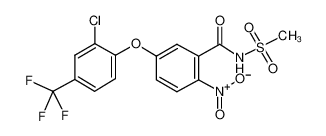




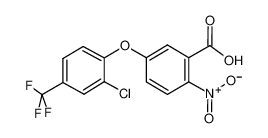




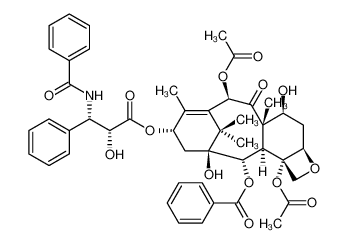
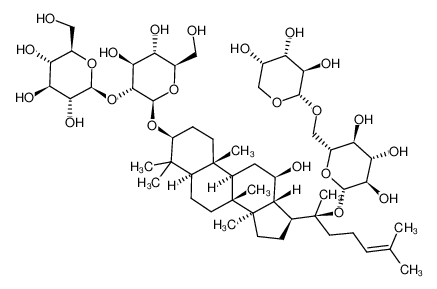
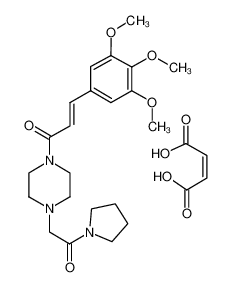
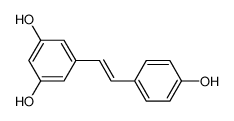

-
-

-
-
-

-
-
-

-
-
-

-
-
-

-
-
-
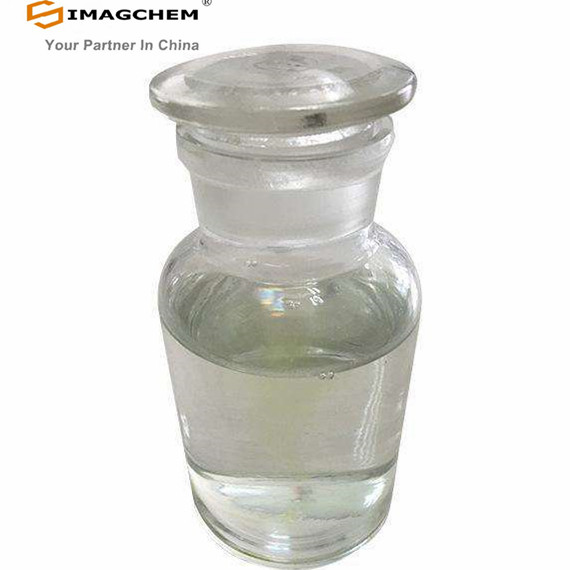
-
-
-

-
-
-

-
-
-

-
-
-

-
More Suppliers>>Boc Sciences
UNITED STATES
Purity: 95%
Lead Time: 1 Week(s)
Price: Min $299 /g
Boc Sciences
UNITED STATES
Purity: 95%
Lead Time: 1 Week(s)
Price: Min $299 /g
Wenzhou Win-Win Chemical Co., Ltd.
CHINA
Purity: 98%
Lead Time: 3 Day(s)
Price: -
Hangzhou J&H Chemical Co., Ltd.
CHINA
Purity: ≥98%
Lead Time: 7 Day(s)
Price: -
Hangzhou J&H Chemical Co., Ltd.
CHINA
Purity: 98%
Lead Time: 14 Day(s)
Price: -
Xiamen Zhixin Chemical Co., Ltd.
CHINA
Purity: 99%
Lead Time: 3 Day(s)
Price: -
Henan Coreychem Co.,Ltd
CHINA
Purity: 98%
Lead Time: 3 Day(s)
Price: Min $1 /g
Shanghai Jizhi Biochemical Technology Co., Ltd.
CHINA
Purity: 99.5%(分析标准试剂)%
Lead Time: 30 Day(s)
Price: -
Hangzhou DayangChem Co., Ltd
CHINA
Purity: 99%
Lead Time: 7 Day(s)
Price: -
Skyrun Industrial Co., Limited
CHINA
Purity: 99%
Lead Time: 7 Day(s)
Price: -